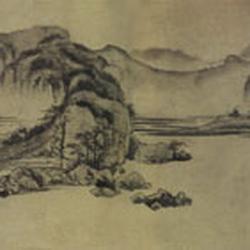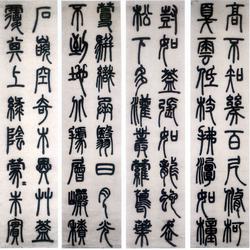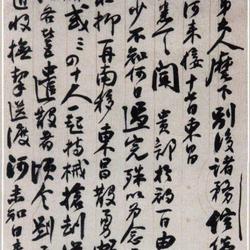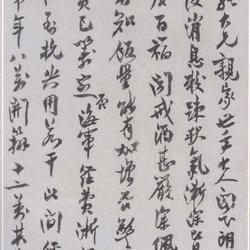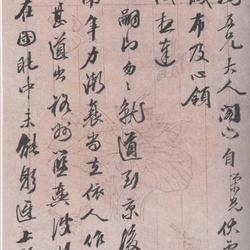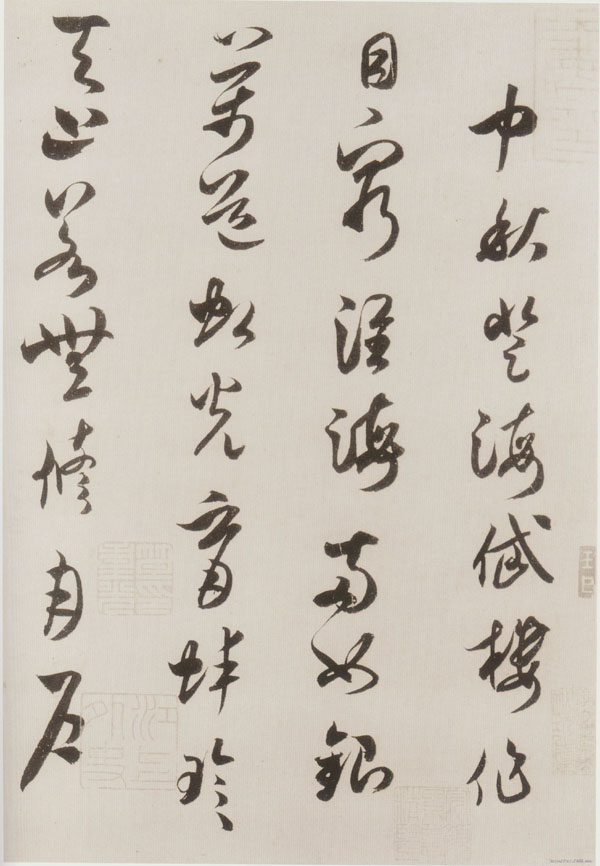
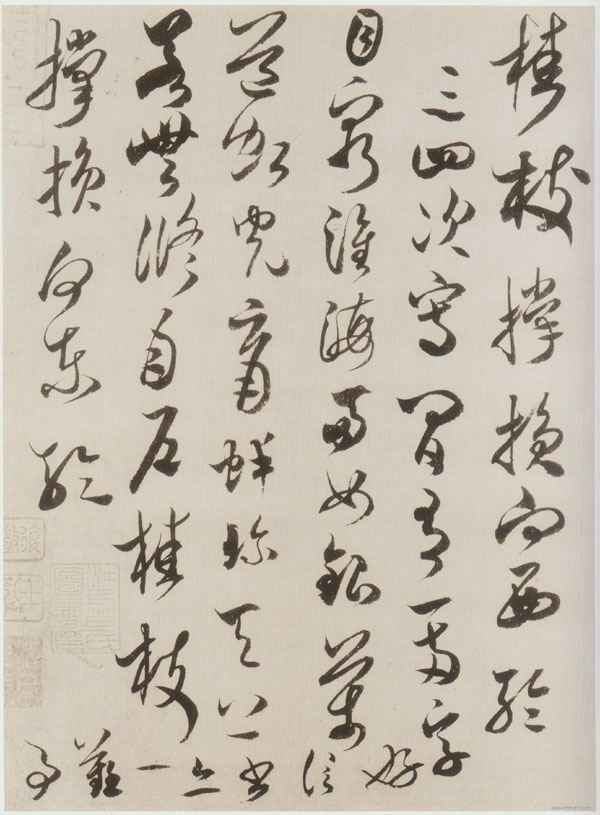
Mi Fu's "Mid-Autumn Festival Climbing Haidai Tower to Compose Poems" is "Mid-Autumn Poems" (sixth and seventh of nine cursive scripts)
Paper, cursive script, 25.2 cm vertical and 36 cm wide, collected by the Osaka Municipal Museum of Art, Japan
Explanation: I climbed to Haidai Tower in the Mid-Autumn Festival to write this poem. My eyes were so poor that the Huaihai Sea was like silver. Thousands of rainbow lights are nurturing clams, and if there is no moonlight in the sky. Guizhi supports the westward wheel.
I wrote it three or four times, and there were one or two words in between that were as good as silver. Thousands of rainbow lights nurture clams and treasures. If there is no Xiu Yue Hu in the sky.
Guizhi supports the eastward wheel. Writing letters is also difficult.
Explanation: Haidai Tower is located in Lianshui (Lianshui, Jiangsu Province). It is a famous scenic spot. Mi Fu often climbs the tower to overlook the vast and magnificent scenery where the Huaihe River enters the sea.
In this poem, Mi Fu describes the sparkling water in Haikou, like silver pouring down the earth, while thousands of rainbows appear in the sky, giving birth to precious pearls.
In the second half of the poem, Mi Fu quoted the allusion of "Wu Gang cutting down the osmanthus trees", saying that if Wu Gang hadn't kept cutting down the osmanthus trees day after day, he would have lost his life.
The fast-growing cinnamon branches will definitely burst the moon wheel.
Mi Fu used this to metaphor that his official career was often blocked by others and could not be fully utilized.
In the post, Mi Fu copied the poem twice, and added a line of annotation in the middle: "One or two words are good every three or four times, and lettering is also difficult." This shows his attitude towards the pursuit of excellence in calligraphy. During the Lianshui period, Mi Fu was diligent in practicing Jin people's cursive script. This post, "Burning Incense Post" and "Cursive Script Treatise" are all examples. In addition, Mi Fu often corresponded with Xue Shaopeng, discussing the purchase of calligraphy, exchanging calligraphy experience, or reviewing books. The two were the best friends in calligraphy and painting. When Mi Fu served as the military envoy to Lianshui (Lianshui, Jiangsu Province), his favorite tourist attraction was Haidai Tower. Haidai Tower is located in Lianshui, Jiangsu Province. It is a very famous sea-viewing tower in the Tang and Song Dynasties. Since ancient times, it has been the best tourist attraction for many literati to visit and compose poems. The poet Du Fu of the Tang Dynasty once said that "the floating clouds connect the Haidai and the plains." "Enter Qingxu" to describe its vast field of vision, grandeur and magnificence
landscape. It also often appears in Mi Fu's poems, such as "Incense Burning Post" (collected by Osaka Municipal Museum of Art): "The rain has not stopped for three days, and the sea is so close that it cannot be reached." It is mentioned that on a day of heavy rain, he went to the sea. The misty scenery seen from Dai Tower.
In another poem "Die Lianhua? Haidai Tower Wan Yue Zuo", Mi Fu also mentioned: "The ripples of the ages clear the land, and the Haidai Tower is tall."
Looking down at the end of Qinhuai River, the sky is as green as water, and the Guanghan Palace is full of human beings. ” and compared Haidai Tower to the “Guanghan Palace” on the moon,
When the poet climbed up the stairs and looked out, he felt quite isolated and independent.

